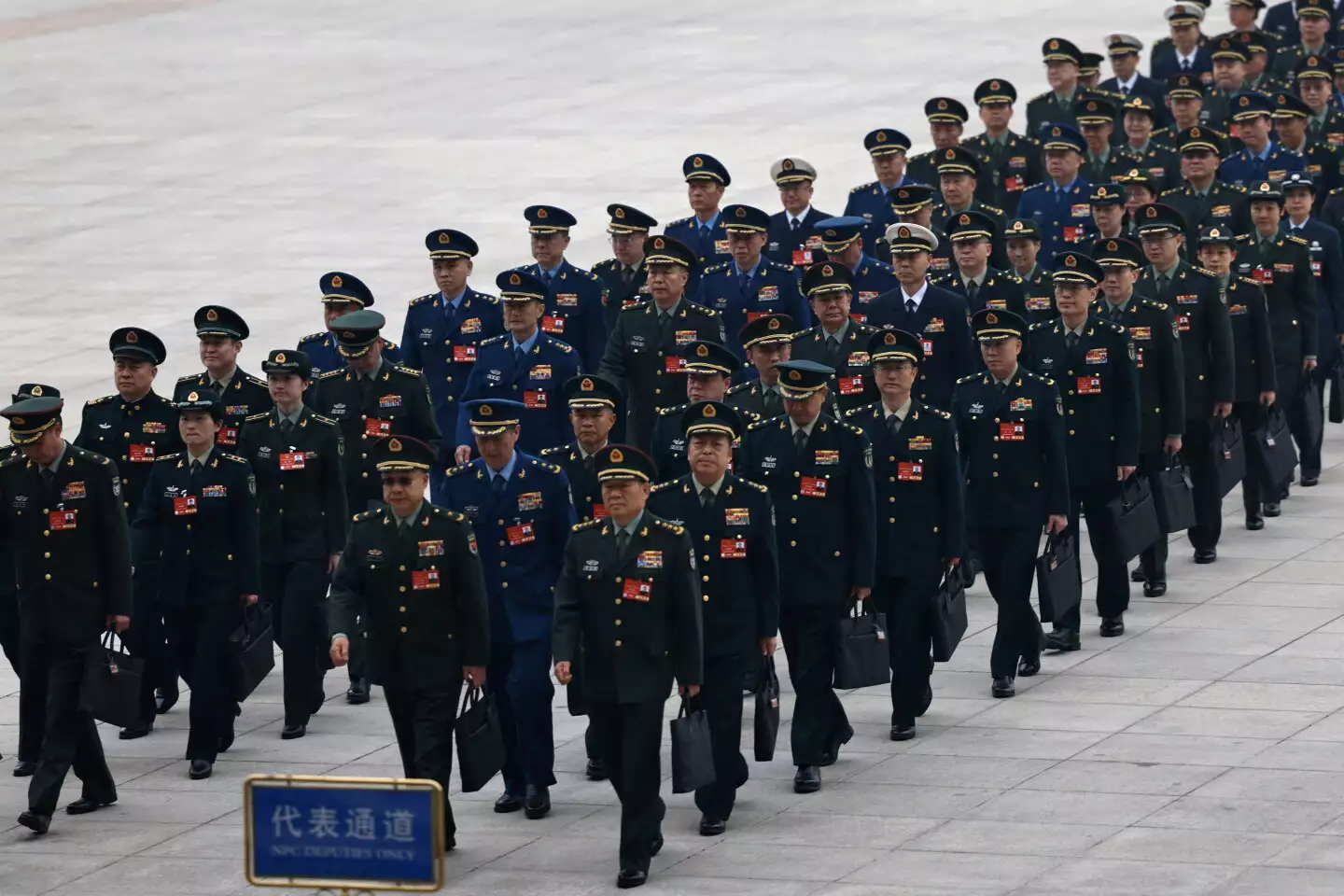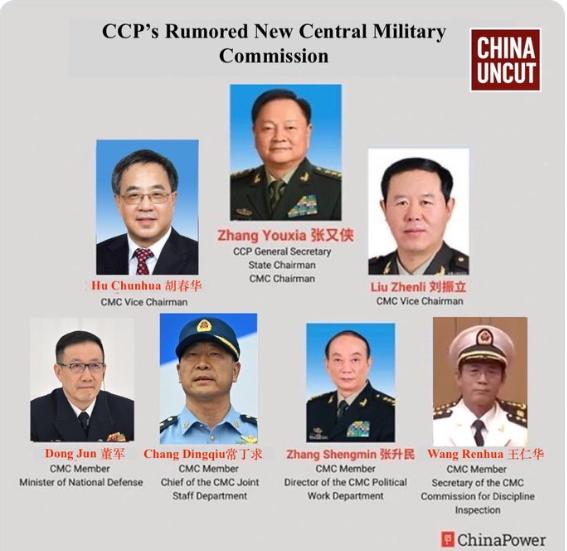Direct translation
Hot News: Xi is currently under control, and major arrangements are being brewed within the system
—Xi’s freedom is restricted. Two options for dealing with him
Reporter : Wang Duruo / Editor: Fang Xun / https://www.aboluowang.com/2025/1022/2294490.html / Image : Web Screenshot

American commentator Tang Jingyuan revealed three key pieces of information he received from high-ranking officials within the system.
First, Xi Jinping's movements have been restricted. Sources claim that Xi Jinping is currently "under control." While the agency responsible for this action was not specified, Tang Jingyuan speculates that it was the Central Police Department or the military. "Given the military's unprecedented move to launch a power grab involving nine generals, the military is more likely."
Second, anti-Xi factions have formulated two scenarios. If Xi Jinping cooperates, they will initiate the "Hua Guofeng model"—allowing him to step down gracefully and achieve a soft landing. If he refuses, they will resort to the harsher approach of "hiding the golden sword in the imperial palace," a palace coup predicted in the classic Chinese classic "Tui Bei Tu." Tang Jingyuan noted that it remains unclear whether this means Xi Jinping will voluntarily resign at the Fourth Plenary Session of the 11th Central Committee.
He recalled that the key moment in Hua Guofeng's marginalization was the Fifth Plenary Session of the 11th Central Committee in 1980, when his close associates Wang Dongxing, Ji Dengkui, Wu De, Chen Xilian, and Chen Yonggui collectively resigned, signaling a "countdown to his resignation." A year later, Hua Guofeng formally resigned as Chairman of the CPC Central Committee and Chairman of the Central Military Commission at the Sixth Plenum, achieving a "bloodless coup."
Tang Jingyuan analyzed that if Xi Jinping followed Hua Guofeng's lead, it is possible he would temporarily retain the "three major positions" after the Fourth Plenum, but only in a "figurehead" role, his real power stripped away. The Politburo and Standing Committee might undergo a major reshuffle, with new anti-Xi figures entering the fold and Xi's supporters "collectively sidelined." "The loss of power may become public, but it doesn't mean their positions will be simultaneously eliminated."
The third piece of news is even more shocking: the Xi family controls the National Security Commission. Reportedly, the National Security Commission, established by Xi Jinping himself, was previously under the control of his sister, Xi Qiaoqiao's family. However, by September, Xi Qiaoqiao's family had left the country, and power was transferred to his younger brother, Xi Yuanping. Tang Jingyuan pointed out, "Xi Yuanping is no 'idler'; he holds real power." However, this system has also suffered a severe blow, marked by the Shenzhen Vanke-Yuanwei Group case.
The case involves Vanke Chairman Xin Jie and former President Zhu Jiusheng, both of whom are under investigation. Xin Jie is accused of being a white glove for Xi Jinping's Qiaoqiao family. This move is seen as a "deep dive into the Xi family's influence in Shenzhen," signifying a severe blow to the Xi family's power and network of interests. Tang Jingyuan commented, "The fact that he can't even protect his own sister's interests signals the collapse of Xi's power."
He also revealed that major arrangements for the "post-Xi era" are brewing within the system, but they are currently being withheld due to security concerns and power redistribution.
While the authenticity of this information cannot be verified, Tang Jingyuan noted, "The CCP is a black box system. These signs at least indicate that the power struggle at the top has intensified, and Xi Jinping's power is being systematically weakened."
The layout is designed, the rhythm of flipping the table
Reporter : Wang Duruo / Editor : Zhongkang / https://www.aboluowang.com/2025/1022/2294768.html
This week, Chinese people around the world were closely watching the Fourth Plenary Session of the 20th Central Committee of the Communist Party of China (CPC)—a conference focused on economic and personnel restructuring. The hottest topic outside China was the potential major power reshuffle: military personnel replacements, changes to the Standing Committee, and the potential for Xi Jinping's power to weaken.
Yao Cheng, a former Lieutenant Colonel and staff officer at the Navy Command, revealed on the day of the Fourth Plenum that Xi Jinping might resign as Chairman of the Central Military Commission (CMC), with Zhang Youxia, the CMC Vice Chairman, taking over. Hu Chunhua, the "deposed crown prince," and Liu Zhenli would become Vice Chairmen of the CMC. Yao Cheng revealed that Xi Jinping "can no longer decide" whether to leave office, as the military has already stated its position. The investigations of numerous military generals and the long-standing vacancy of these positions have exacerbated the situation of "no one in command." At a time when global wars are raging and the war model relies on high-level command and coordination, the CCP military is in disarray, akin to a "state on the verge of collapse."
Another version of the "three up, three down" succession plan has also been circulating: Xi Jinping, Li Qiang, and Cai Qi step down; Wang Yang, Hu Chunhua, and Yin Li take over. Rumors suggest that Xi Jinping will retain only the presidency, while Wang Yang will become Party General Secretary and Chairman of the Central Military Commission. Hu Chunhua will replace Li Qiang as Premier, and Yin Li will join the Standing Committee of the Politburo Standing Committee but not the General Office of the CPC Central Committee. Zhang Youxia will hold real power in the military, with Hu Chunhua and Liu Zhenli serving as second and third vice chairmen, respectively.
Overseas commentator Cai Shenkun described the situation as "the layout has been perfectly planned, a truly table-turning situation." He said that if Xi Jinping loses military power, he will also lose Party power, and he may face a liquidation. "This is the political upheaval many have been eagerly awaiting, but the reality is likely to be disappointing."
Independent scholar Wu Zuolai read mixed signals from a 6,000-word article published by Xinhua News Agency on the eve of the Fourth Plenum—the article repeatedly suggests that "interest groups still need Xi to remain in power" and that "the situation is not optimistic." Overseas commentator Tang Jingyuan, however, believes the article reads more like a elegy for Xi Jinping—high-profile praise that in reality paves the way for his departure.
The Fourth Plenum continues behind closed doors, and rumors are swirling. Whether it's the "table-turning" scenario or the "dirge-singing" plot, all signs indicate that the CCP's political situation is at a critical juncture.

Image : X screenshot



No comments:
Post a Comment